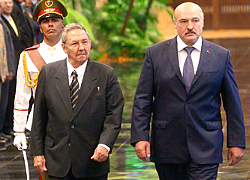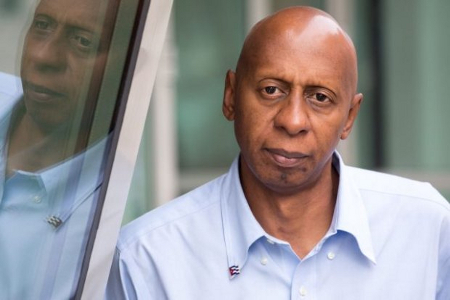Cuban dissident: Raul Castro studies Lukashenka's experience
30- 10.06.2013, 7:26
- 56,776

Guillermo Fariñas warns the West against dealing with dictators.
The Cuban regime, like the Belarusian one, trades in political prisoners, prohibits its opponents to leave the country and tries to repair its image in the world's eyes. Havana, like Minsk, hopes for loans from Europe and the United States.
Guillermo Fariñas, a famous Cuban journalist, dissident and winner of the Sakharov Prize, gave an interview to Gazeta Wyborcza.
His parents were revolutionists. His father fought in Congo under Che Guevara. Guillermo Fariñas studied in a military college in the USSR and served in the Cuban army. He became disappointed with the regime in 1989 after the arrest and execution of Arnaldo Ochoa. He has been in the opposition to Castro's government since then.
Guillermo Fariñas spent over 11 years in prisons for his public and political activity. He had 23 hunger strikes. He was taken to an intensive care unit on the verge of death during his hunger strike in 2010. The Cuban regime had to make concessions and fulfil his demand to free 52 dissidents.
Guillermo Fariñas was awarded with the Andrei Sakharov Prize founded by the European Parliament. He received the opportunity to go to Brussels to accept the award only this year. The Cuban authorities that often dubbed the dissident a “criminal” allowed him to travel abroad.
“The regime tries to 'polish' its image in the eyes of democratic countries. It needs loans and investments from the US and Europe. Havana understands that the subsidies from Venezuela that allow the country to survive will end soon. They release some political prisoners and allow opposition activists to leave the country,” Guillermo Fariñas says.
The Cuban dissident notes that Raul Castro and his team study the experience of other dictators and autocrats focusing on bargaining with western countries for survival.

“The regime has been examining the experience of Russia, Belarus and Ukraine for the last few years. They try to copy their line of conduct towards the western countries,” he says. Asked if it is possible to compare the policy of the Cuban authorities with reforms in communist China or the late USSR, the dissident answers: “I'd rather compare it with Lukashenka's conduct. Permission to use mobile phones and the internet is an attempt of making a 'soft landing' for Raul Castro in case of crisis.”
He says the country's democratic forces mustn't allow it and stands against lifting sanctions from the Cuban government.
The dissident names five main demands of the opposition.
“We demand the unconditional release of political prisoners and an end to repression. There are 82 political prisoners. The people of Cuba should have free access to information and the right to create political parties and organisations. All citizens of the country, including those who had to leave it, must have the right to participate in social, political and economic life of Cuba. Havana must ratify and observe the Universal Declaration of Human Rights,” the dissident says.
Guillermo Fariñas says people shouldn't believe the dictatorial regime, because all “reforms” it conducts have just one aim – to live as long as possible on western money.
“The devil will lose his job when Castro goes to hell,” he says.









